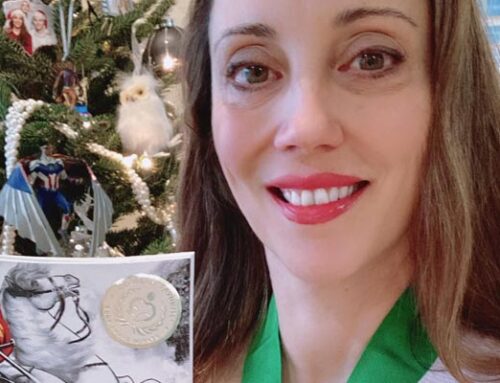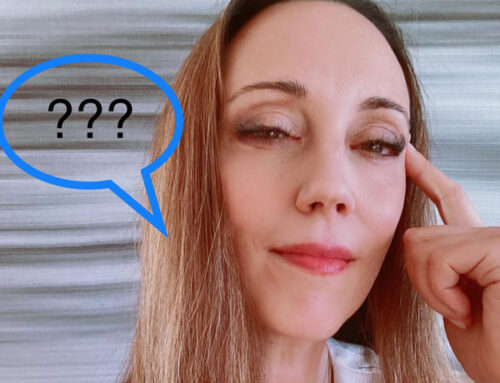Open your arms to change, but don’t let go of your values. – Dalai Lama
Emerging from an unexpectedly difficult battle with COVID has given me pause to reflect. What matters most in an increasingly complex and uncertain world where change itself, is changing? As a transformation leader, there is certain comfort in ambiguity – understanding that complex systems are self-organizing and that change can fluctuate from the chaotic, to the emergent, to the stable. As a human being, I long for moments of pause to calm the adrenaline, regain my footing, gather learning and plan my next adaptive action1.
Given the vast array of sticky issues in our time ranging from conflict, poverty, climate change, equity, inclusion, extremism and so forth, how do I show up as a leader, mentor, parent, and individual in a world where the pace of change is so relentless and complex? What grounding or stabilizing elements can support my own self-organization process?
For me, the one stabilizing element I draw from is my values.
At its core, working from a framework of values-based leadership as a philosophy assumes that individuals are motivated (largely) by their values, and that these beliefs frame how they live or make decisions that are important to them.
Brent Gleeson, Navy Seal combat veteran and author, speaks to how values-based leaders take time each day to reflect on their recent decisions and motivations. Doing so offers them the chance to re-evaluate their values, determine their purpose and discover what really matters to them as leaders and members of a team.2
Values-based leadership is integral to the process of transformation in organizations as it ensures people are aware of the new values and that those are aligned with the organization’s mission, vision, as well as their own values.
So where can the principles of values-led decision-making come into play in your personal life as you attend to the tensions and turbulence of decision making?
In Human Systems Dynamics, there is an exploration of the finite and infinite game.3 They use this tool to inform complex decision-making by examining the short and long-term implications of those decisions and corresponding actions. When you are making immediate decisions or dealing with matters that are predictable or bounded by some parameters, you are looking at the finite game. (Examples they use are board games or sporting events. Here is where your aim is to win!) However, when you are dealing with
longer, more complex matters that require continued attention and sustainability, (such as familial relationships, your well-being, or a team’s productivity) you are looking at the infinite game.
Playing in both fields is required. However, in a world where change is changing, and the field of play is never clearly defined, our values become the infinite game. Our values are what hold us accountable in terms of how we show up and behave as leaders – something to be nourished in the space of the infinite game.
Your values are the important beliefs you hold that permeate all aspects of your life. You may have found that when you make decisions and take actions that honor your values, you find peace or fulfillment. Conversely, you may find that when you make decisions that do not honor or conflict with your values, you encounter tension or discontent. In leadership, our values transcend the finite and infinite game as they reflect the ethos of our decision-making, authenticity and engagement styles. I see them as essential to executing your mission and vision for your life.
Simple rules are one way we can reflect on and express how we define those values. (For more information, check out my blog on this subject here.)
Whether you are playing in the spaces of the finite game or infinite game, considering using the questions below to make values-based decisions.
- What decisions and options do you have, and how do they align or conflict with your values?
- Which value(s) do you have to absolutely honor and which value(s) are you willing to compromise?
- Based on your answers, what decision is the best fit for purpose and your values?
Is having a personal leadership philosophy important to you? How does this show up in your every day life? How do you hold yourself accountable to living by your core values? Have you found those core values shifting in these times of continued and emerging uncertainties?
Recently, I came across a personal values sorting exercise, developed by W.R. Miller et al, University of New Mexico in 2001.
- In your own time, print, cut and shuffle all the value cards.
- Begin sorting the cards under three relevant headings: ‘Very Important to Me’, ‘Important to Me’, ‘Not Important to Me’.
- Sort swiftly without over analyzing.
- Gather the cards under the ‘Very Important to Me’ heading. Reflect and challenge yourself: Why is this value important to me? If I could choose value x or y, which would I choose?
- Establish the final, prioritised list of 5 values.
When reflecting on what matters to you, what did you learn about yourself? What do you want to see stay the same, or be different given this exercises? What surprised you? What will you adopt as your core values now?
What is one shift you will make today to identify, refine or live by those values?
- Join the conversation @makeoneshift






This is an interesting article. The simulation of the impacts of decisions within a finite space sounds interesting. What if your personal values and the values projected by the company or organization are conflicting? Power is obviously with the management. Change management isn’t very easy.
That is indeed a great, and all-to-real observation. Power, conflicting values, change, are all sticky to navigate. In this storm of decision making, I found that at the end of the day, it is my values that serve as my loadstar for how I show up or make difficult decisions about whether I stay in such circumstances. Change management is certainly a tricky job!